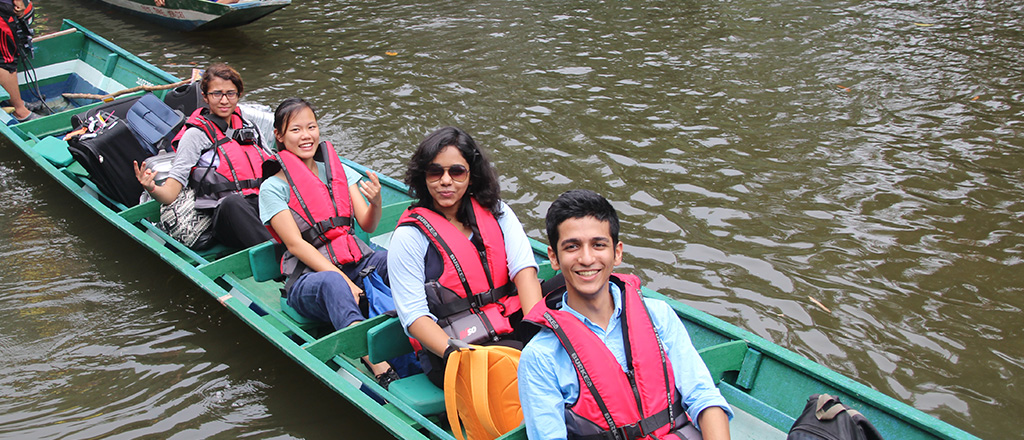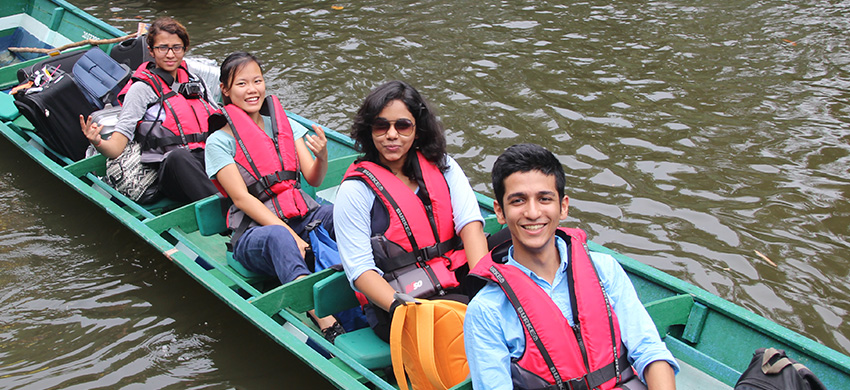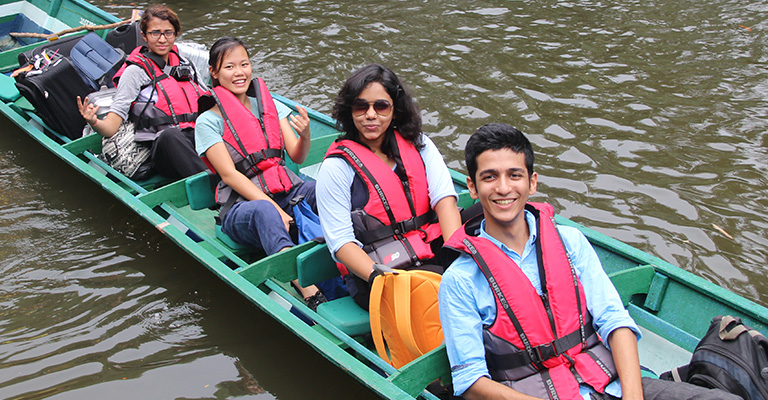Experiential learning – or learning by doing – is an integral part of the Yale-NUS academic and residential experience. Yale-NUS students are exposed to different experiential learning opportunities in the curriculum, whether through initiatives such as Week 7 and Learning Across Boundaries (which are faculty-led short experiential learning projects), student research opportunities, and applied learning assignments and activities in the classroom.
At Yale-NUS, faculty design in-class activities and assignments that require students to engage with and solve real world problems as part of their efforts to stimulate critical thinking skills, collaboration, creativity, problem solving, and experimentation. Many of these activities are also accompanied by opportunities for discussion and reflection.
In-class activities
Many faculty across the disciplines use in-class experiential learning activities to enhance students’ engagement with learning and their comprehension of difficult concepts.
Here are some examples of in-class activities conducted by Yale-NUS faculty:
- Genetic algorithms
- Optical illusions
- Cultural underpinning of parental behaviour
Assignments
Experiential learning assignments vary widely, and include — among others — creative projects, fieldtrip reports, hackathons, policy memos, portfolios, research for clients, blogs and websites, photo essays and videos, and sketches and reflections.
Here are examples of various student assignments in Yale-NUS courses and their final products:
- Creative Projects
- Research for clients
- Blogs
- Hackathons
Experiential learning courses
Experiential learning courses are courses where activities outside of the classroom are a substantial component of Yale-NUS students’ learning experience.
Examples of courses of this nature include:
- Urban Agriculture
- Singapore Biodiversity: Past, Present, and Future
- Lab in Psychology and Public Policy
- Museums and Libraries as Cultural Institutions of Memory
- Field Research
Urban Agriculture
In this course, students learn the political economy and cultural politics of the urban food context in Singapore, and as part of the learning process, students manage a small plot to produce food in the Yale-NUS urban farms.
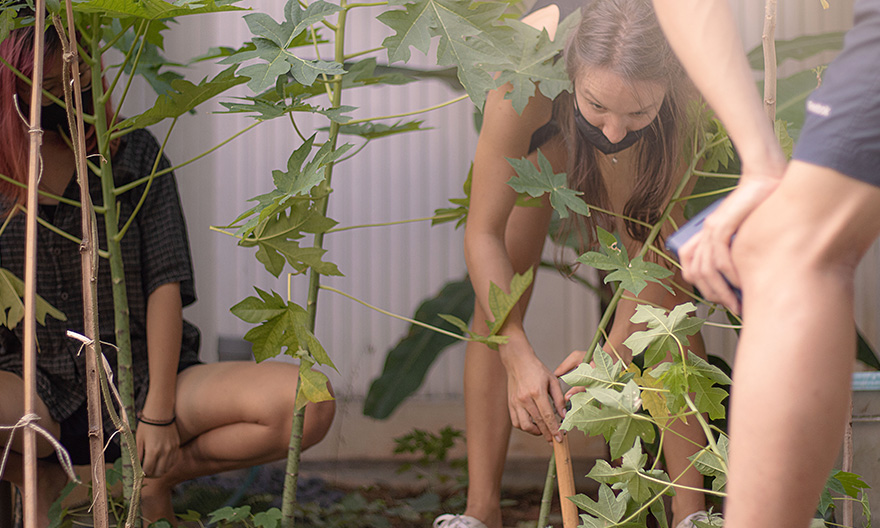
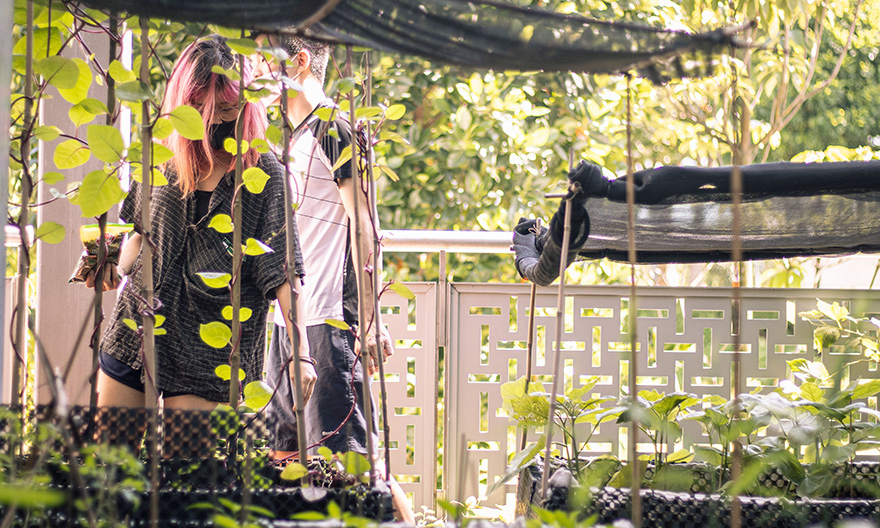
The video below documents students’ learning experience, and the relevance of the practical component.
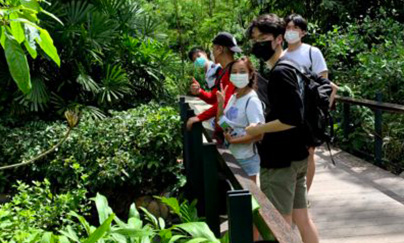
Singapore Biodiversity: Past, Present, and Future
This course exposes students to the multiple aspects of Singapore’s biodiversity, combining the rigour of scientific concepts and field methods with the wealth of historical perspectives and cultural analyses. While the course focuses on the past and present of Singapore’s natural world, it also highlights the role of environmental history and biodiversity research in addressing future environmental challenges.
Our Alumni Voices

Angela Ferguson
Class of 2018
During my second year at Yale-NUS, my class on peri-urbanisation took a field trip to Bandung, Indonesia. I got to see the divergence between urban theory and practice in the context-specific dynamics around local land use. I’ve tried to keep this sensitivity to context with me in my job as a research analyst and my volunteer roles in the climate movement.

